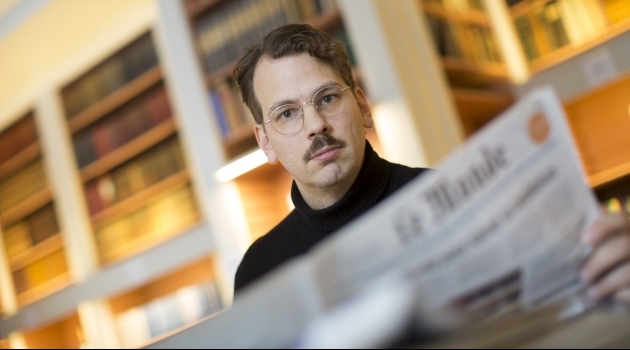“The political landscape is changing”
Johannes Heuman, researcher in history with a focus on French post-war history, divides his time between Uppsala and Paris. During the presidential election in France, he commented on the election in several Swedish media outlets.
“I didn’t follow the French election as a historian, I did it because of my general interest in the French debate on ideas. Having said that, history feels very much present and of course that adds to my interest. History has helped me understand different positions in the debate relating to religion, culture and issues of identity,” Heuman says.
The election in France attracted great international interest, as one of the candidates was Marine Le Pen from the far-right party Front National. As it turned out, she did not win (the winner was Emmanuel Macron), but there is growing populism in France.
Similar trends are in evidence in several other countries. What is special about the situation in France?
“The globalisation of recent decades has been particularly painful in France as it has coincided with economic stagnation. Since the post-war period, France has lost its great power status and that has increased resistance to globalisation here. Both Marine Le Pen and the far left have attempted to appeal to these opinions, Heuman says.
“It’s not certain that this is a crisis of democracy – it may be a sign that the political landscape is changing. I find the debate very lively and interesting to follow, and a broad spectrum of views have been expressed. In that sense, what has been happening has not been purely negative.”
One example of the way in which the political climate has changed is the new direction for the left, says Heuman.
“The Socialist Party, which did very badly in the election, has failed to pick up the votes of the shrinking working class and the underclass. Just talking about welfare is not tenable, you have to appeal to the anxiety provoked by free trade, open borders and a flexible labour market. The far left has understood that. They want to strengthen France’s independence internationally and have begun to talk about reality as it appears to the losers of globalisation, not just the middle class.”
What will happen now, after the election?
“One risk in the election lies in the expectations that Emmanuel Macron represents something new. To be sure, he has new proposals, but there’s not that big a difference from the former President. There’s a risk of a backlash when people notice that things are going on much as before. It’s easy to mistake new blood for new times.
Annica Hulth

